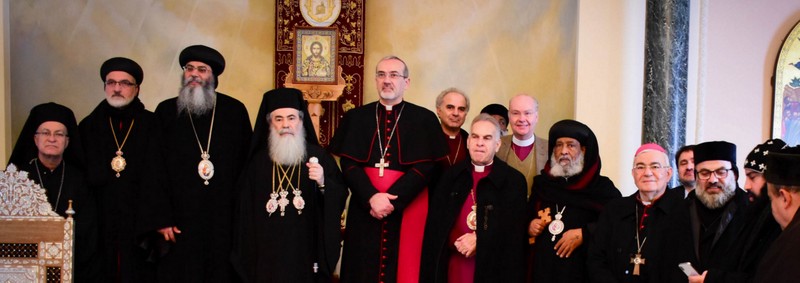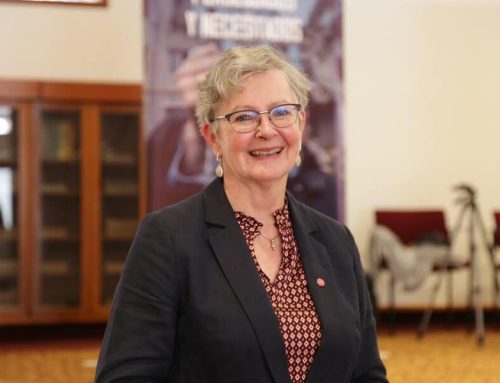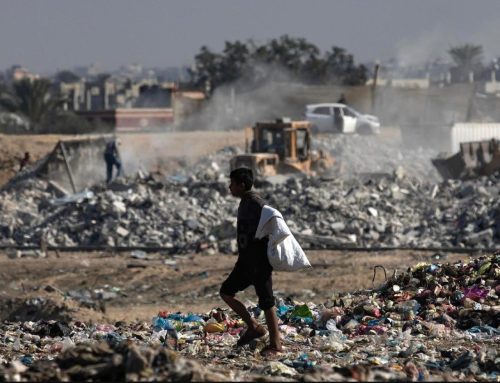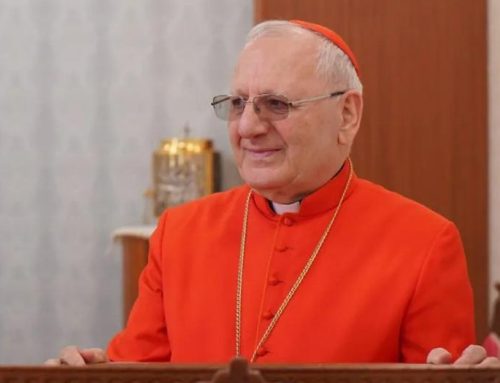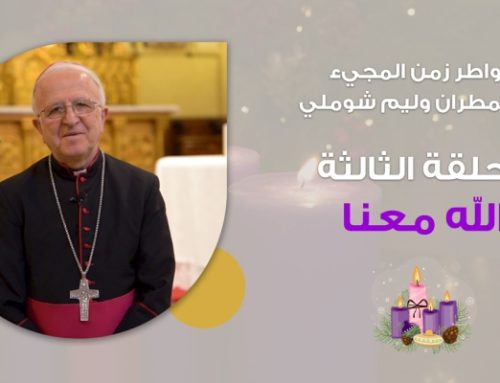JERUSALEM – On the morning of January 9, assemblies of all the Christian communities of the Holy Land gathered at the Greek Orthodox Patriarchate, for the traditional Christmas greetings to Patriarch Theophilos III.
As is the custom, this year the Christian communities of Jerusalem and the Holy Land gathered at the Greek Orthodox Patriarchate of Jerusalem, for the annual exchange of Christmas greetings, which is celebrated on January 7 for the Orthodox Church. On this day, in fact, the Orthodox celebrate the day of Jesus’ birth in line with the Julian calendar, introduced by Julius Caesar. When in 1582 Pope Gregory XIII decided to modify the calendar and inaugurate a new one, which would be called “Gregorian”, Catholics and Orthodox stopped celebrating Christmas on the same date. The days between October 5 and 14, 1582 were canceled at the time and therefore our December 25 became January 7 for the Orthodox.
The representatives of all the ecclesial realities of the Holy Land, including of course Archbishop Pierbattista Pizzaballa, the Apostolic Administrator of the Latin Patriarchate, accompanied, among others, by Bishop Giacinto-Boulos Marcuzzo, the Patriarchal Vicar for Jerusalem and Palestine.
All the guests were warmly received by His Beatitude, the Greek Orthodox Patriarch Theophilos III, who greeted one by one the representatives of the Christian communities present for the greetings.
The first to speak was Archbishop Pizzaballa, who, in his remarks, immediately reaffirmed the opportunity and the need for unity among the Churches of the Holy Land. Unity that expresses itself not only through these ritual meetings, but also and above all through witness. It consists in “our capacity, as Christian communities, to live experiences of love, forgiveness and freedom,” he said, addressing the Orthodox Patriarch and the whole assembly. He then went on to recall that, in order to carry out the commitments for the new year, it will be necessary “to continue showing unity and harmony” among all the Christian communities.
Commitments that for the coming year will consist in the “definition of rights and duties of the Churches against civil laws, in the right of the Church to freely manage their properties, the autonomy of our institutions and the free movement of our communities.” These challenges are accompanied by the even more important one consisting in perpetuating the mutual collaboration between the different Christian denominations in order to “build together solid and supportive communities for the life of our societies,” in deference to the “mission that Christ entrusted to us for the good of all.”
The meeting was animated by a choir who performed traditional Orthodox chants.
By: Filippo De Grazia
Source: Latin Patriarchate of Jerusalem

